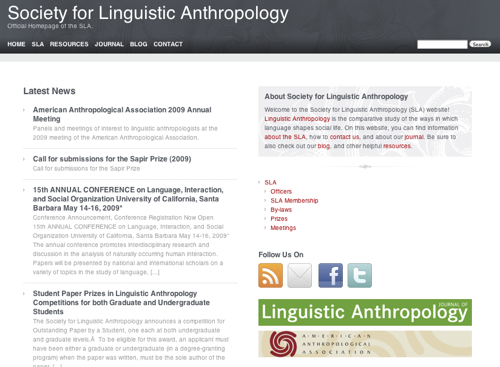Unless you’ve been living under a rock (where you probably don’t get WiFi and won’t be reading this), you’ve heard something about the release on Sunday of 92,000 primary documents culled from classified US military field reports from Afghanistan compiled by Wikileaks.org and given in advance to the New York Times , Der Spiegel, and The Guardian.
There is much think and say about this event and these documents. Apropos recent conversations at SM, I’d like to point out that there are probably better places to say some of these things.
One thing that strikes me as relevant for comment here is the way that ‘facticity’ and authority based in being there are at the heart of some discussions.
Take for example this interview from NPR’s All Things Considered between co-host Robert Segal and Wikileaks mastermind Julian Assange.
Here are the most relevant bits:
Julian Assange: The full story is only going to emerge over the coming weeks as that material is correlated to the witnesses who are on the ground, both the US soldiers and Afghanis
Robert Segal: [Challenging Assange’s comparison of The Afghan War Diaries to the Pentagon Papers] These are raw reports that are not confirmed and edited
JA: This material has its strength in that it is not an analysis, not written at the higher levels so it can be publicly massaged, it is in fact the raw facts of the war
RS: Some people would dispute your use of the word ‘facts,’ or indeed there might be something oxymoronic in ‘raw facts’
JA: The majority of reports are immediate reporting from the field from US military operations
What I see emerging here is an interesting conversation about textual authority, and one that resonates with our own disciplinary claims to authority based on ethnographic experience (see Clifford, Marcus, Gupta and Ferguson, etc. for some classic wailing on that old chestnut).
Assange begins by saying that these raw facts will only be fully cooked into a truthy pie once they are compared to the testimony of “witnesses who are on the ground.” And yet, when Segal notes the criticism that these raw facts are, in fact, too raw to be facts—that they need a little correlation before they can be safely consumed—Assange suggests that it is their very rawness that makes them good: Instead of truthy pie, he changes his order to sashimi.
The thing is, be they raw or cooked, pie or sashimi, these documents are not unadulterated. They are not like snapshots of the war, with all the claims to verisimilitude that visual medium implies (it’s worth mentioning that this connection between verisimilitude and the visual is also one way that witnessing stakes its authoritative claims). So, they are not like photographs. They are documents written within the generic constraints of military field reporting for a particular intended audience of surveilling authorities as official archival records.
Drop weapons are a concrete example of the things that are written out of these kinds of documents. Drop weapons are enemy weapons (like AK 47s) that US forces carry with them so that if they accidentally kill a civilian, they can ‘drop’ them by the body and have documentable proof that the civilian was actually an insurgent.
Drop weapons are useful because they alibi omissions (of the killing of civilians) from the After Action Report (AAR) which is part of the official record. But they are also useful because they enable the inscription of other things (the killing of insurgents) in the official record.
For a different and very interesting example directly from the Wikileaks docs, check out this corrective by Noah Shachtman, one of those on the ground witnesses.
The point is, however we choose to digest these documents, we need to consider them within the institutional and social context of their production, and whatever they are, they are not a diary.


